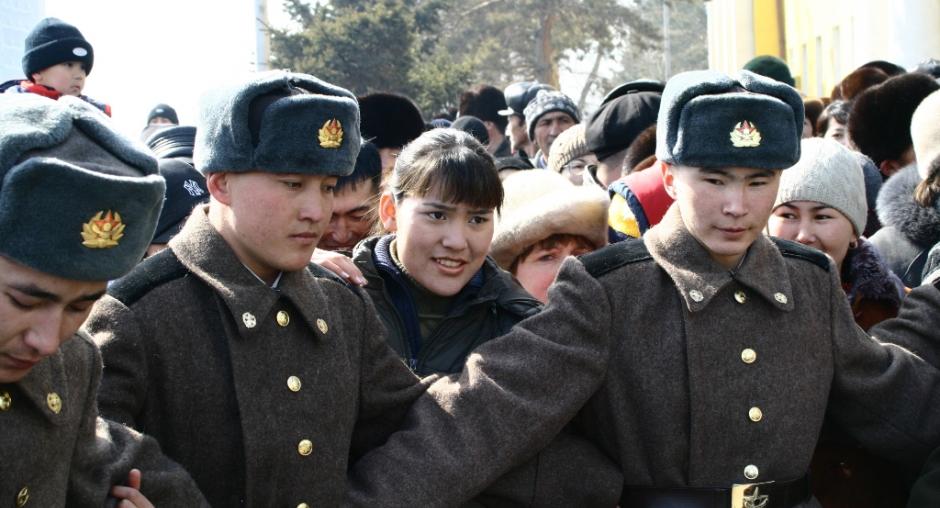Newsroom
OSCE Centre promotes freedom of assembly in Kazakhstan
ALMATY 19 March 2007

(OSCE)A report presented in Almaty on 20 March 2007 proposed improvements to legislation and practices on the right to freedom of assembly in Kazakhstan. A rally in Almaty in March 2004. (OSCE) Photo details
ALMATY, 20 March 2007 - A report, presented today at a news conference in Almaty, proposes improvements to legislation and practices on the right to freedom of assembly in Kazakhstan.
The paper, prepared by the Kazakhstani NGO Charter for Human Rights and supported by the OSCE Centre in Almaty, outlines the results of a monitoring conducted in 2005 and 2006 on the basis of OSCE and other international standards on freedom of assembly.
It recommends introducing legal definitions of different types of assemblies and eliminating administrative restrictions on places and time frames for holding peaceful assemblies.
"Restrictions to the right to freely and peacefully assemble must reflect the principles of proportionality and necessity in a democratic society. This means that legal, administrative and law enforcement's limitations should guarantee as much as possible the people's right to free and peaceful assembly, while allowing the preservation of public order and avoid instances of violence," said Ambassador Ivar Vikki, the Head of the OSCE Centre.
"The OSCE Centre will continue assisting Kazakhstan in bringing national legislation in line with international standards."
The monitoring covered nearly 50 assembly meetings that took place in Astana, Almaty, Karaganda and Shymkent.
The project was implemented with support from the OSCE Office for Democratic Institutions and Human Rights.
The paper, prepared by the Kazakhstani NGO Charter for Human Rights and supported by the OSCE Centre in Almaty, outlines the results of a monitoring conducted in 2005 and 2006 on the basis of OSCE and other international standards on freedom of assembly.
It recommends introducing legal definitions of different types of assemblies and eliminating administrative restrictions on places and time frames for holding peaceful assemblies.
"Restrictions to the right to freely and peacefully assemble must reflect the principles of proportionality and necessity in a democratic society. This means that legal, administrative and law enforcement's limitations should guarantee as much as possible the people's right to free and peaceful assembly, while allowing the preservation of public order and avoid instances of violence," said Ambassador Ivar Vikki, the Head of the OSCE Centre.
"The OSCE Centre will continue assisting Kazakhstan in bringing national legislation in line with international standards."
The monitoring covered nearly 50 assembly meetings that took place in Astana, Almaty, Karaganda and Shymkent.
The project was implemented with support from the OSCE Office for Democratic Institutions and Human Rights.
